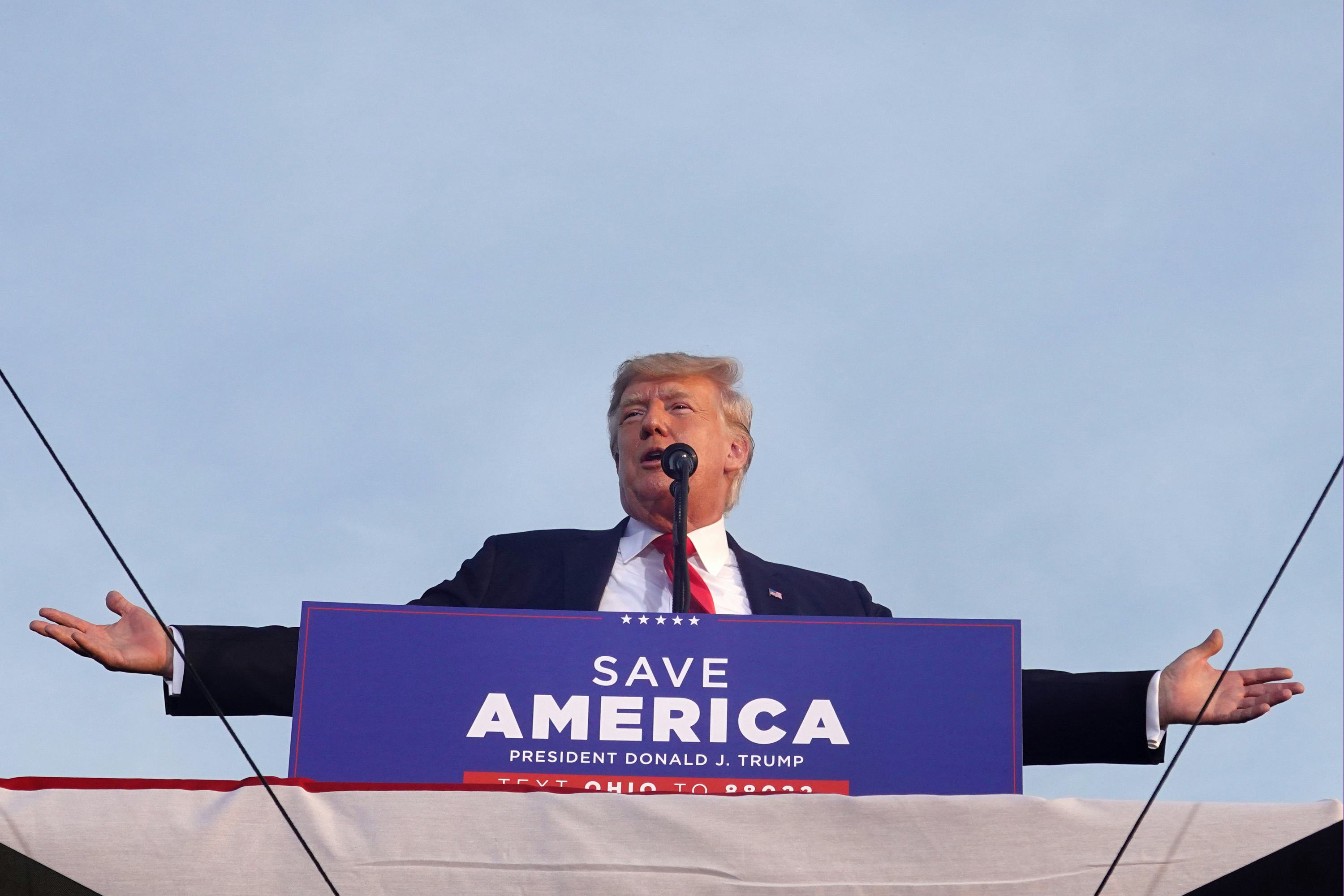
It's hardly a secret that former President Donald Trump's overriding philosophy during his time in office was first and foremost: "How can I, Donald Trump, make this whole thing as good and lucrative as possible for me, Donald Trump?" It is through this lens that Trump almost certainly looks back at his four years in the White House as an unmitigated success, with a new report detailing the massive haul of cash the former president's various businesses brought in between 2017 and 2020.
According to analysis from Forbes magazine, the vast network of properties, private clubs, and other money-making enterprises raked in an astonishing $2.4 billion in revenue from January 2017, when Trump was sworn in as president, to December 2020, in the final weeks of his term. That staggering total was fed largely by Trump's commercial properties and private clubs and golf courses — his two most visible money-making enterprises — with a whopping $270 million coming in from his Doral golf resort alone.
While the total sum calculated by Forbes is eyebrow raising in its own right, it's worth noting that the $2.4 billion represents revenue, not profit, and the true, full nature of the former president's finances remain a mystery to the general public — even as prosecutors suspecting financial crimes sift through his, and his company's' tax records.
Still, it's notable that a former president whose election was ostensibly predicated on — and who pointedly refused to divest from — his eponymous businesses was able to bring in so much money. While Trump was hardly shy about using the bully pulpit of the presidency to boost his own financial interests, the Forbes analysis offers a concrete sense of scale to just how lucrative those endeavors were. And from the looks of it, they were, indeed, staggeringly successful.
Which isn't to say that Trump fully maxed out his money-making potential during his time in office. As Forbes notes, the coronavirus pandemic which came to define his final year in office ended up dropping his annual top-line revenue significantly in 2020, bringing the estimated $650 million average from the first three years of his time in office down by nearly a third. Were it not for the pandemic — and, in no small part, Trump's own disastrous handling of it — it's likely that his business revenues would have been considerably higher.
Still, given the murky specifics of Trump's business and personal finances, the $2.4 billion intake is merely one piece of a much larger, more complex puzzle based on intricate fiscal maneuvering designed to maximize profit and minimize tax liability — possibly to the point of criminality. Indeed, should prosecutors successfully make the case that the Trump organization knowingly broke the law, the former president's precariously balanced series of business loans and complicated financial agreements could be in serious trouble. If that does happen, the cascading financial fallout could be enough to permanently cripple the Trump business empire — no matter how much money his time in office helped bring in.







